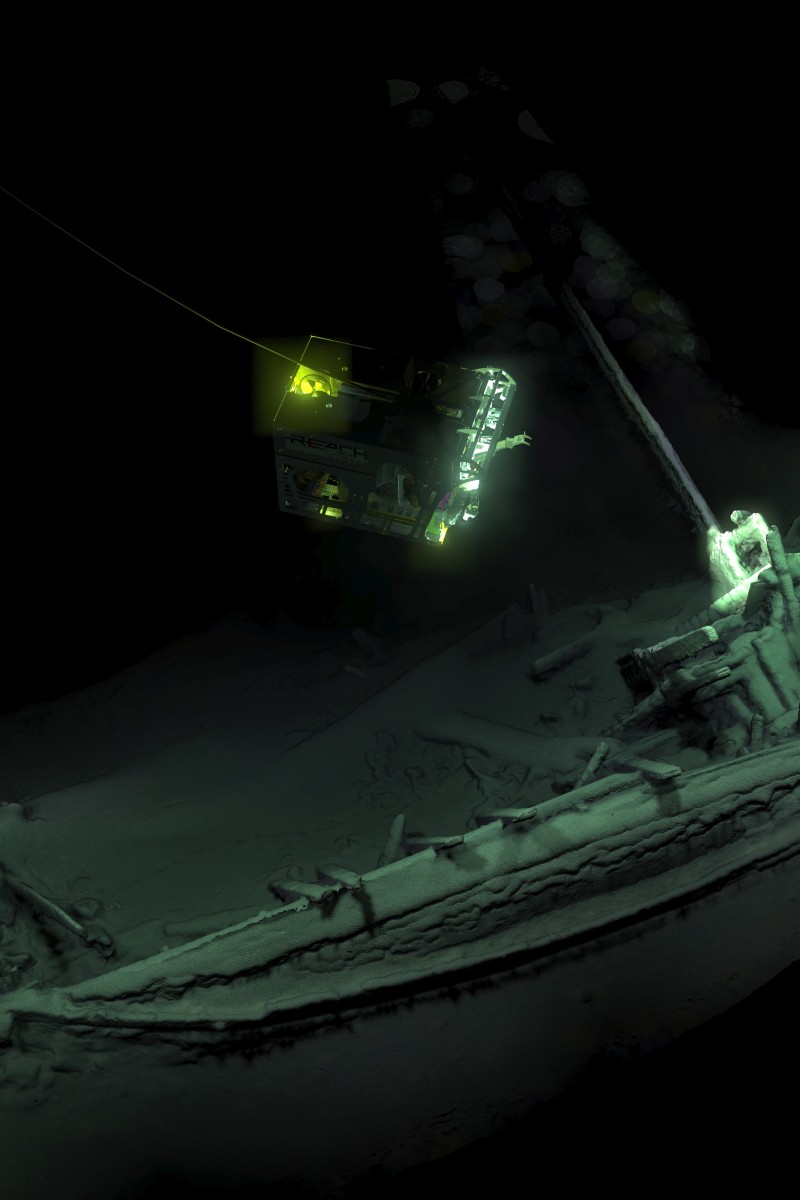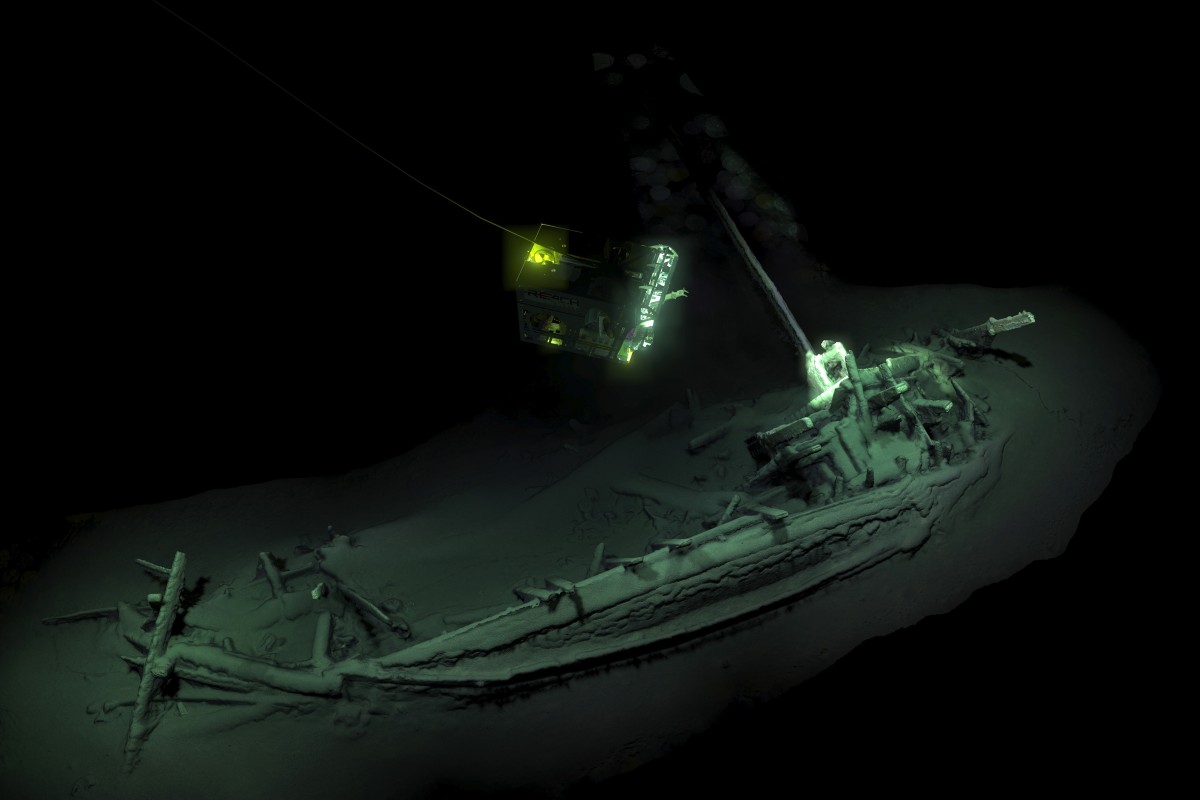
Carbon dating estimates the Greek trading vessel to be 2,400 years old; it is one of more than 60 shipwrecks found at the site
 The world's oldest intact shipwreck was found in the Black Sea.
The world's oldest intact shipwreck was found in the Black Sea.An ancient Greek trading ship dating back more than 2,400 years has been found virtually intact at the bottom of the Black Sea. It is the world’s oldest known shipwreck, researchers said on Tuesday.
The vessel is one of more than 60 shipwrecks identified by the Black Sea Maritime Archaeology Project including Roman ships and a 17th-century Cossack raiding fleet.
During the three-year project, researchers used specialist remote deep-water camera systems previously used in offshore oil and gas exploration to map the sea floor.
“A small piece of the vessel has been carbon dated and it is confirmed as the oldest intact shipwreck known to mankind,” the project said in a statement.
The ship, which is lying on its side with its mast and rudders intact, was dated back to 400 BC - a time when the Black Sea was a trading hub filled with Greek colonies.
The team said the vessel, previously only seen in an intact state on the side of ancient Greek pottery, was found at a depth of more than 2,000 metres.
Former Hollywood Road police station, Tai Kwun, showcases HK's history and heritage
The water at that depth is does not have any oxygen in it, meaning that organic material can be preserved for thousands of years.
“A ship, surviving intact, from the Classical world, lying in over two kilometres of water, is something I would never have believed possible,” said Professor Jon Adams from the University of Southampton in southern England, the project’s main investigator.